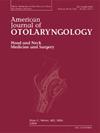Acetazolamide use in postoperative CSF leak prevention: A literature review
IF 1.7
4区 医学
Q2 OTORHINOLARYNGOLOGY
引用次数: 0
Abstract
Background
Acetazolamide, a carbonic anhydrase inhibitor and commonly utilized diuretic, has been found to decrease cerebrospinal fluid (CSF) production, leading to its use in the prevention of postoperative CSF leaks. Despite its widespread use, the efficacy and optimal protocols for acetazolamide in this context remain poorly defined. This systematic review aims to elucidate the role of acetazolamide in preventing postoperative and traumatic CSF leaks.
Methods
A systematic review was performed in Covidence adhering to PRISMA Guidelines. A search of PubMed, SCOPUS, and CINAHL for literature published through July 2023 identified 215 unique publications related to acetazolamide use in preventing postoperative CSF leaks. Full texts were independently screened by two authors, with discrepancies resolved by third reviewer. 15 publications were selected and categorized into themes including postoperative CSF leak prevention, trauma management, dosage optimization, and adverse effects.
Results
Of the fifteen articles, twelve focused on the role of acetazolamide in preventing postoperative CSF leaks, highlighting its effectiveness in reducing leak rates following neurosurgical and otolaryngological procedures. Themes discussed in the remaining six articles included acetazolamide's role in managing intracranial hypertension in trauma patients, optimal dosing strategies, and the spectrum of side effects ranging from mild to severe.
Conclusion
Acetazolamide shows promise in the prevention of postoperative CSF leaks and in certain trauma contexts. However, further studies should establish standardized protocols and optimize dosing regimens. Future research should also focus on long-term outcomes and the management of adverse effects to fully elucidate the benefits and limitations of acetazolamide in these clinical settings.
乙酰唑胺在术后预防脑脊液泄漏中的应用:文献综述
背景乙酰唑胺是一种碳酸酐酶抑制剂和常用的利尿剂,已被发现可减少脑脊液(CSF)的产生,从而用于预防术后脑脊液泄漏。尽管其广泛使用,但在这种情况下,乙酰唑胺的疗效和最佳方案仍然不明确。本系统综述旨在阐明乙酰唑胺在预防术后和外伤性脑脊液泄漏中的作用。方法按照PRISMA指南对冠状病毒进行系统评价。通过PubMed、SCOPUS和CINAHL检索截至2023年7月发表的文献,确定了215篇与乙酰唑胺用于预防术后脑脊液泄漏相关的独特出版物。全文由两位作者独立筛选,差异由第三方审稿人解决。我们选择了15篇出版物,并将其分类为术后CSF泄漏预防、创伤处理、剂量优化和不良反应等主题。结果在这15篇文章中,有12篇文章关注了乙酰唑胺在预防术后脑脊液泄漏中的作用,强调了其在降低神经外科和耳鼻喉外科手术后脑脊液泄漏率方面的有效性。其余六篇文章讨论的主题包括乙酰唑胺在治疗创伤患者颅内高压中的作用、最佳给药策略以及从轻微到严重的副作用范围。结论乙酰唑胺在预防术后脑脊液渗漏和某些外伤中有良好的应用前景。然而,进一步的研究应该建立标准化的方案和优化给药方案。未来的研究还应关注长期结果和不良反应的管理,以充分阐明乙酰唑胺在这些临床环境中的益处和局限性。
本文章由计算机程序翻译,如有差异,请以英文原文为准。
求助全文
约1分钟内获得全文
求助全文
来源期刊

American Journal of Otolaryngology
医学-耳鼻喉科学
CiteScore
4.40
自引率
4.00%
发文量
378
审稿时长
41 days
期刊介绍:
Be fully informed about developments in otology, neurotology, audiology, rhinology, allergy, laryngology, speech science, bronchoesophagology, facial plastic surgery, and head and neck surgery. Featured sections include original contributions, grand rounds, current reviews, case reports and socioeconomics.
 求助内容:
求助内容: 应助结果提醒方式:
应助结果提醒方式:


